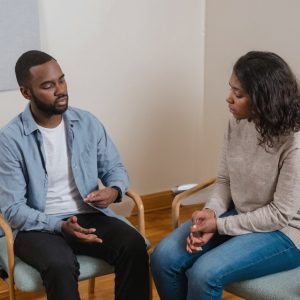The Importance of Couples Counseling: Strengthening Relationships and Enhancing Mental Health
In the tapestry of human relationships, romantic partnerships stand out as one of the most significant threads. They are sources of love, support, and companionship, but they can also be fraught with challenges and conflicts. When issues arise, couples counseling often emerges as a crucial resource. This form of therapy not only fosters healthier relationships but also contributes significantly to the overall mental well-being of both partners.
Understanding Couples Counseling
Couples counseling, also known as couples therapy or marriage counseling, is a type of psychotherapy aimed at helping partners recognize and resolve conflicts to improve their relationship. It is typically facilitated by a licensed therapist with expertise in relationship dynamics. The sessions provide a safe and structured environment for couples to communicate openly, understand each other’s perspectives, and develop effective strategies for dealing with disputes.

Strengthening Relationships
Enhanced Communication: One of the most common issues in relationships is poor communication. Couples counseling encourages open dialogue and teaches partners how to express their needs and concerns constructively. This improvement in communication can reduce misunderstandings and foster a deeper emotional connection.
Conflict Resolution Skills: Every relationship encounters conflicts. What matters is how couples handle them. Counseling equips partners with tools and techniques for resolving disagreements in a healthy manner, preventing minor issues from escalating into major problems.
Rebuilding Trust: Trust is the cornerstone of any healthy relationship. Infidelities, lies, or breaches of trust can severely damage a partnership. Through counseling, couples can work through these breaches, understand their root causes, and rebuild trust through honesty and consistent behavior.
Strengthening Emotional Bonds: Counseling can reignite emotional intimacy by helping partners reconnect on a deeper level. This reconnection often involves rediscovering shared interests, setting common goals, and appreciating each other’s unique qualities.

Impact on Mental Health
Reduced Stress and Anxiety: Relationship problems are a significant source of stress and anxiety. By addressing these issues in counseling, couples can alleviate the mental burden they impose. This reduction in stress can lead to improved mental health for both partners.
Improved Individual Self-Esteem: A healthy relationship boosts self-esteem. When partners feel valued and understood, their self-worth is enhanced. Conversely, a troubled relationship can lead to feelings of inadequacy and low self-esteem. Counseling helps partners feel heard and appreciated, fostering a positive self-image.
Mitigating Depression: Persistent relationship issues can contribute to depression. The feelings of loneliness and despair associated with unresolved conflicts can be overwhelming. Couples counseling can provide a pathway to resolution, thereby alleviating depressive symptoms and promoting emotional well-being.
Healthy Coping Mechanisms: Counseling teaches couples healthy ways to cope with stressors, both within and outside the relationship. These coping mechanisms can extend to other areas of life, contributing to overall mental resilience and well-being.
When to Seek Couples Counseling
Couples counseling is beneficial at various stages of a relationship:
Early Stages: New couples can use counseling to build a strong foundation and establish healthy communication patterns from the outset.
During Transition Periods: Life transitions such as moving in together, marriage, having children, or career changes can strain relationships. Counseling helps couples navigate these changes smoothly.
When Facing Persistent Issues: Chronic problems such as infidelity, financial stress, or persistent arguments are clear signals that professional help is needed.
Prevention and Maintenance: Just as individuals see doctors for regular health check-ups, couples can use counseling as a preventive measure to maintain a healthy relationship.
Conclusion
Couples counseling is not just about fixing what is broken; it is about nurturing and enhancing what is already good. By fostering better communication, resolving conflicts, and rebuilding trust, counseling strengthens relationships. Moreover, the positive effects on mental health cannot be overstated. Reduced stress, improved self-esteem, and better coping mechanisms are just a few of the mental health benefits that extend beyond the relationship itself.
In essence, investing in couples counseling is investing in the well-being of both partners. It is a proactive step towards a healthier, more fulfilling relationship and a happier, more balanced life.

Leave a Reply